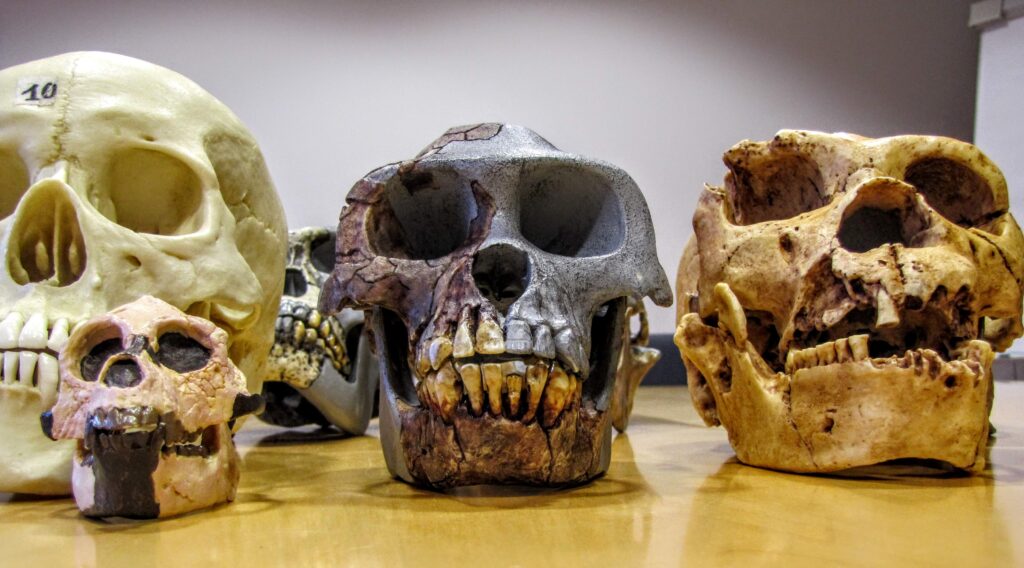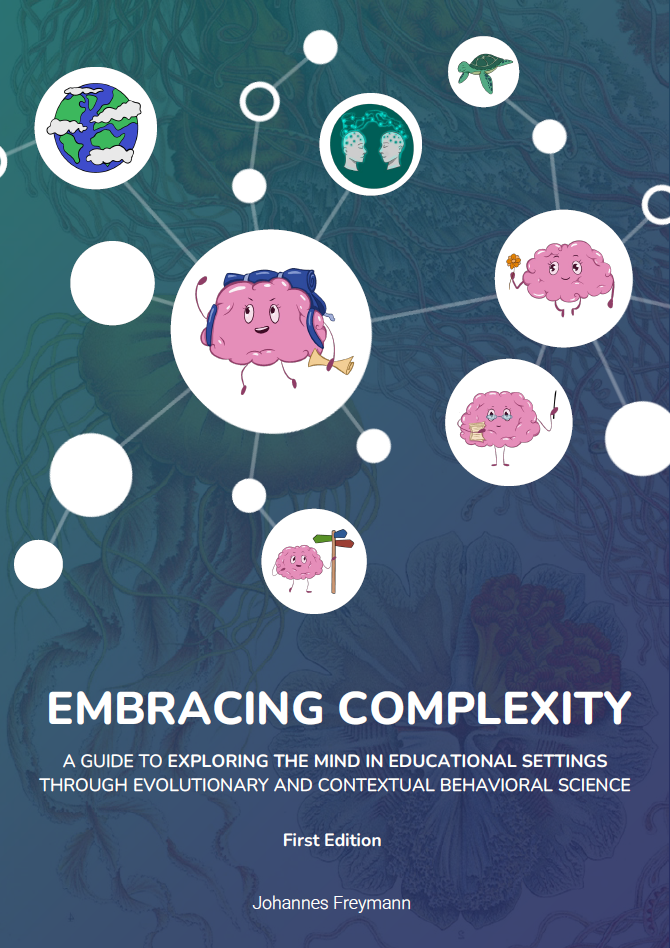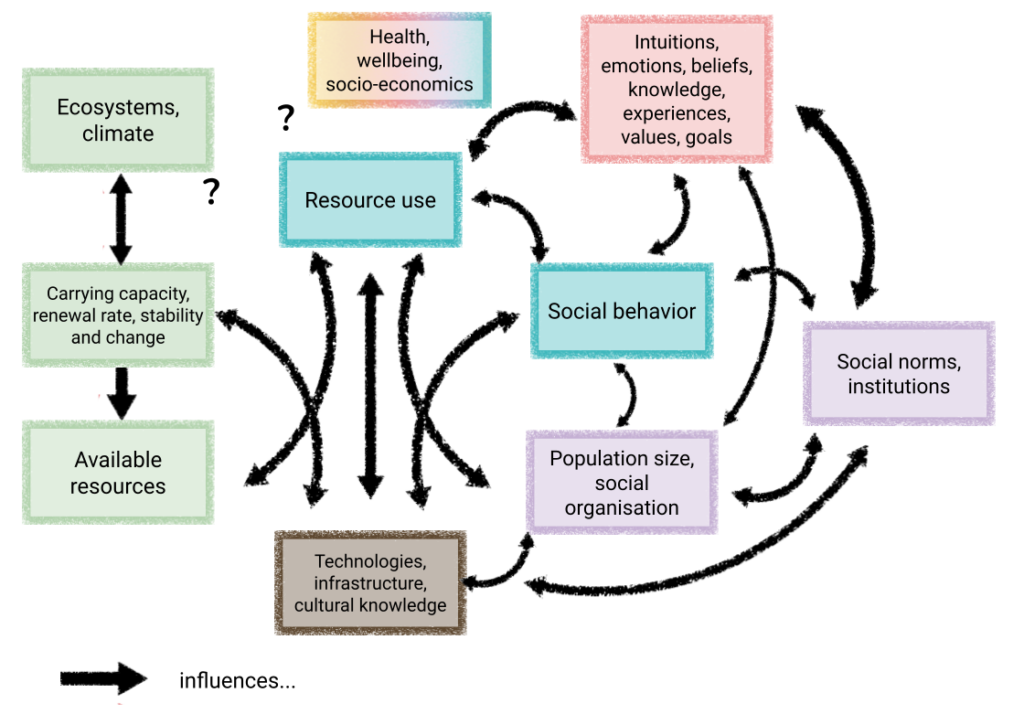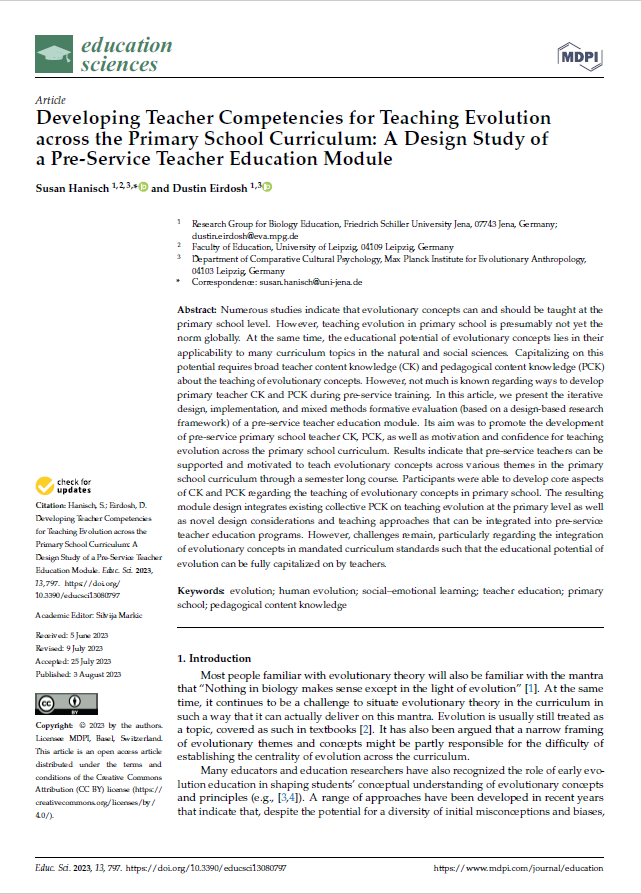Evolutionary Thinking
Evolutionary Thinking
Mental Time Travel
Human Evolution Resources Mental Time Travel As we look more closely at our perception and thinking, we may find that we are quite often “somewhere else”. We may be physically sitting in the room, walking down the street, or lying in bed, but in our minds we are wandering around in time and space: we
Mental Time Travel Read More »
Fast and slow thinking
Human Evolution Resources Fast and Slow Thinking As we look more closely at our perception and thinking, we find that some of it is quite automatic and effortless. Other situations require our conscious concentration and make us tired very quickly. So solving the equation “2 + 2” feels quite differently to us from solving the
Fast and slow thinking Read More »
Self-study module: Computer simulations on evolution and sustainability
A self-study module on the OpenEvo learning hub on teaching about the evolution of sustainable resource with NetLogo computer simulations
Self-study module: Computer simulations on evolution and sustainability Read More »
Embracing Complexity
A guide to exploring the mind in educational settings through evolutionary and behavioral science
Embracing Complexity Read More »
Moral intuitions
Human Evolution Resources Moral Intuitions A basic insight of social psychology is that our beliefs and attitudes about ethical-moral issues are largely influenced by “fast thinking“. People tend to quickly decide what is morally “right” and “wrong” through intuition and emotion, and only then, through conscious, rationalizing thinking, to find reasons that support their initial
Causal mapping pieces for causal relationships in the present and future
Materials for creating a causal map on the relationships between human behaviors, technologies, institutions, social and natural environments
Causal mapping pieces for causal relationships in the present and future Read More »
Connecting Past, Present, and Future
A collection of materials for connecting past human evolution to the present and the future. Students explore global trends and relationships between human behavior, technologies, social organization, environment, and well-being.
Connecting Past, Present, and Future Read More »
DNA-V
Psychologists Louise Hayes and Joseph Ciarocchi have developed the DNA-V model. It contains the metaphors of the “Discoverer“, “Noticer“, “Advisor” and the “Valuer”, to help humans be aware of, make use of, and practice different skills towards valued living.








